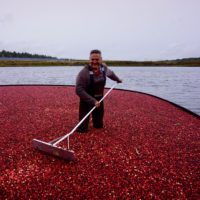‘Bitzer,’ said Thomas Gradgrind. ‘Your definition of a horse.’ ‘Quadruped. Graminivorous. Forty teeth, namely twenty-four grinders, four eye-teeth, and twelve incisive. Sheds coat in the spring; in marshy countries, sheds hoofs too. Hoofs hard, but requiring to be shod with iron. Age known by marks in mouth.’ Thus (and much more) Bitzer. ‘Now girl number twenty,’ said Mr Gradgrind. ‘You know what a horse is.’ The opening chapters of Dickens’ Hard Times probably have all of us recoil at the insistence of Mr Gradgrind on a school where … [Read more...]
Archives for 2020
Economic Impact: A Quick and Dirty Critique
Teaching arts policy this fall, I needed a two-page briefing to warn my students off using economic impact studies as an arts advocacy tool. Here's the result: What is an Economic Impact Study? Definitions are hard to come by. I can tell you how a number is calculated, so let’s start there. Pick a sector: it can be film production in a state, or nonprofit arts organizations, or cranberry farming, or anything. First ask: What were total sales in that sector in a state over the course of a year? That should be easy to figure – every … [Read more...]
It’s Friday, Ask Me Anything
The amazing students in our Arts Administration program at the O'Neill School at Indiana University have requested an ask-me-anything day, and so here it is. Through the day you can continue to ask questions either in the comments section here, or on Twitter, and I'll do my best. 2:30 pm What is the most valuable lesson you've learned as a parent? I'll give a list: Be as good as you can, know you will never be perfect; let children explore; recognize when you have done wrong, apologize for it, but don't dwell on it, look forward and be … [Read more...]
Strategic Planning and Muddling Through
Out in the woods for today's video, on Charles Lindblom's classic essay "The science of 'muddling through'". When an arts organization sets out to form a strategic plan, what exactly is it doing? Is a so-called 'logic model', that carefully sets out desired outcomes, and then works backwards through the most effective outputs and actions, the way we actually conceive of the problem? Or in fact is what we do in practice much more modest, taking existing activities as more-or-less given, and looking to a few changes at the margin that ought to be … [Read more...]
Voting for arts funding – a short video
We are making the adjustment to teaching arts policy at a distance for the remainder of the semester, and so I'm about to get used to (and hopefully better at) short videos for students, practitioners, anyone with an interest. In this one - I kept it to eighteen minutes - I talk about a study I did on the 2002 referendum in Metro Detroit that would have seen a property tax increase to provide funding for a number of arts organizations. It failed. In my study I took precinct-level voting data, matched the precincts to census tracts, and … [Read more...]




